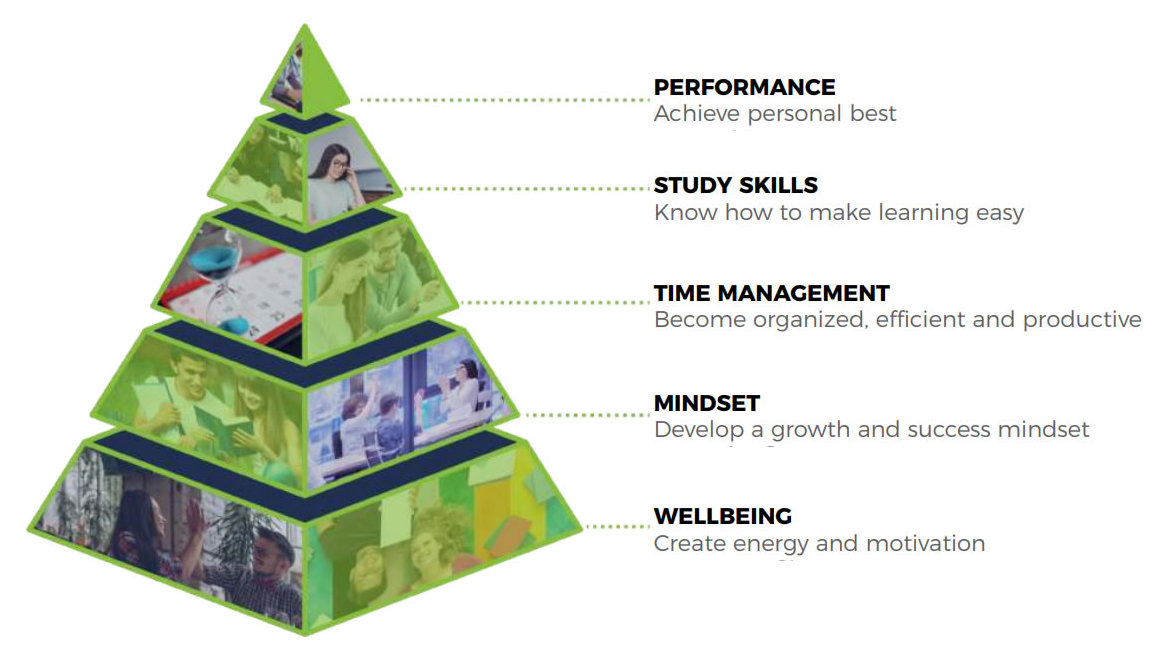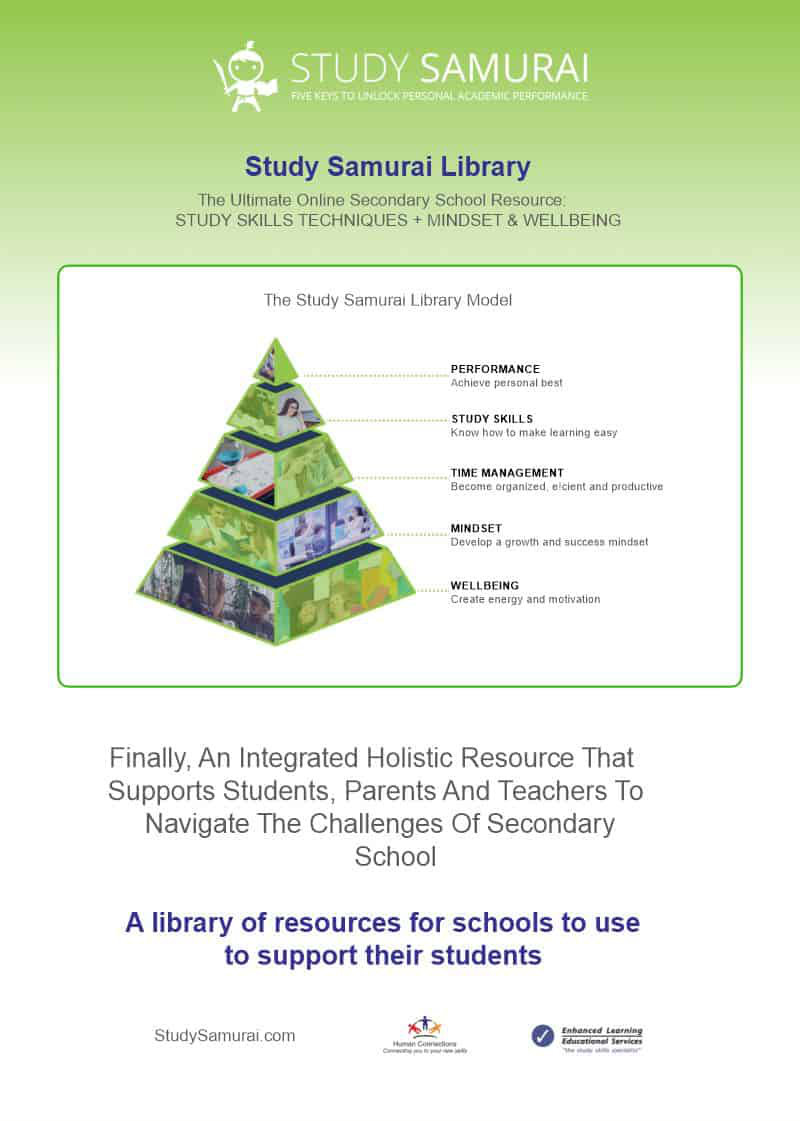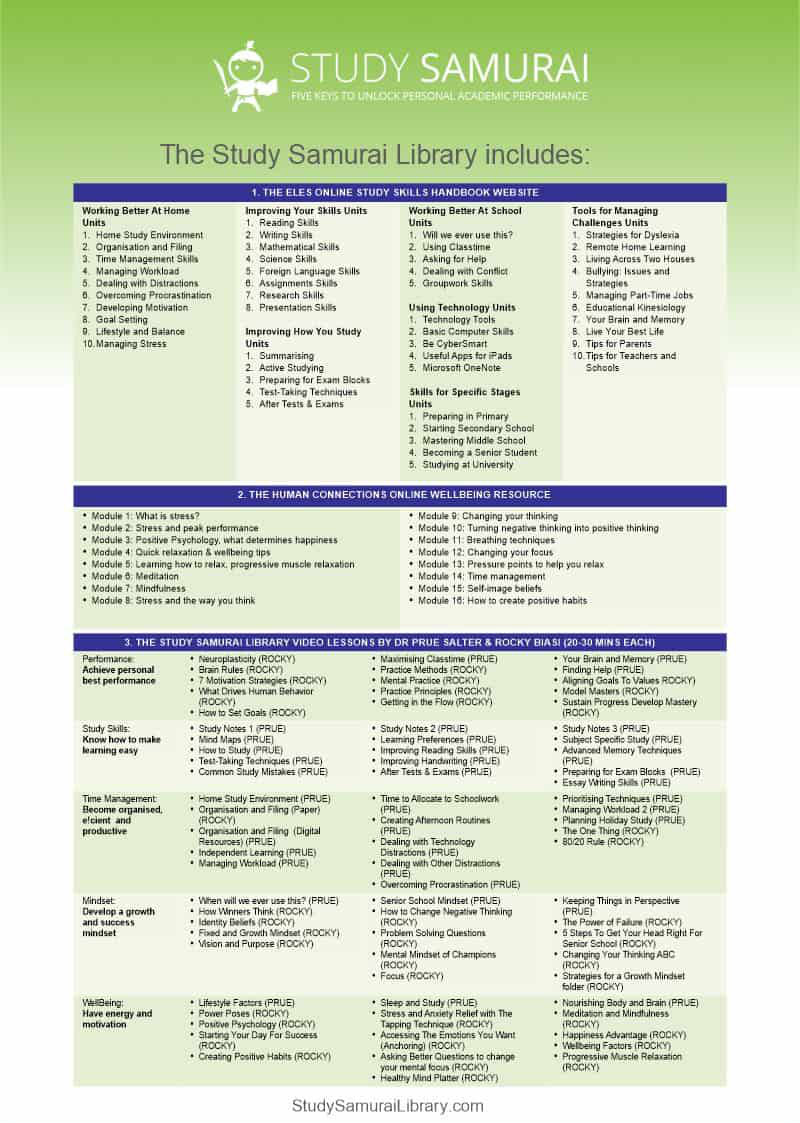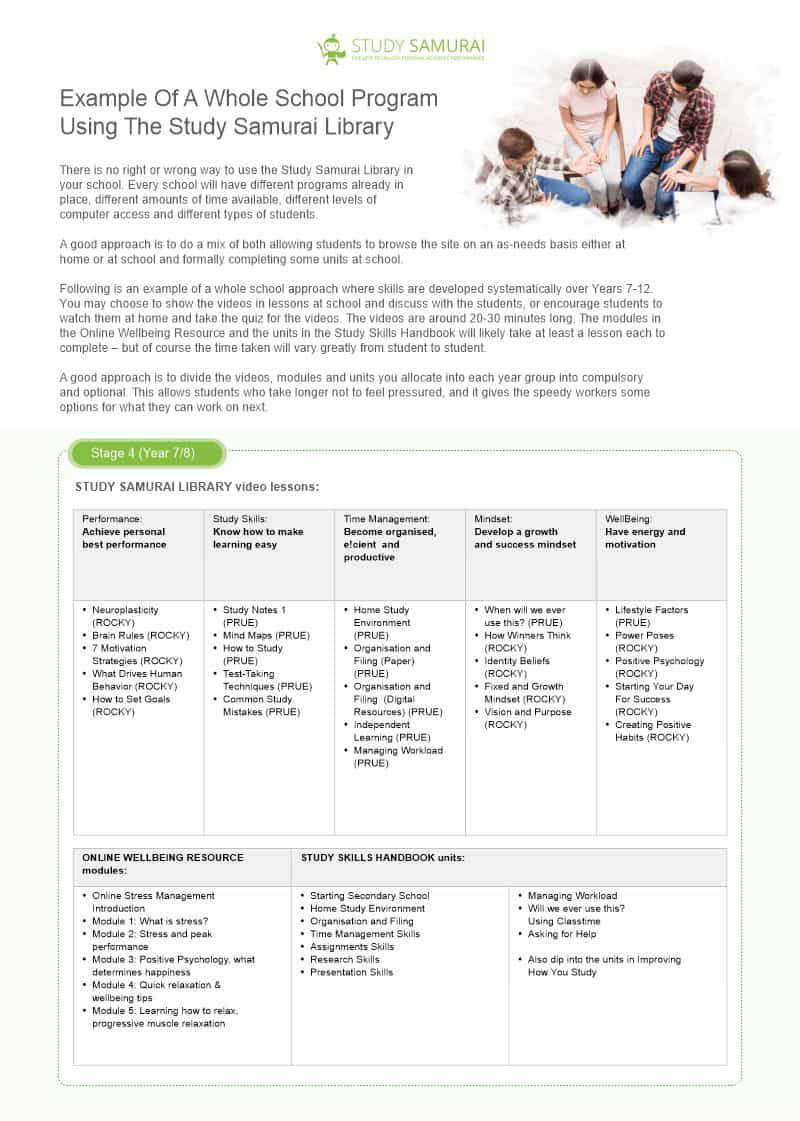Does your school already subscribe to the Study Skills Handbook? Would you like to SUPERCHARGE your school’s subscription by upgrading to include the Study Samurai Library Videos?
If you are looking for resources for both study skills AND mental health and wellbeing, adding the Study Samurai Library to your subscription is a must.
Access a library of 75 video lessons (around 20 mins each) by Dr Prue Salter and Rocky Biasi covering topics on study skills and wellbeing. And, as a bonus, you will also receive access to the Human Connection’s Online Wellbeing Course.
What’s the difference between SSH and SSL?
▶ Find out more at Study Samurai Library Info.
How much does it cost to add on the Study Samurai Library to our current active Study Skills Handbook subscription?
| Your current subscription category | Additional cost to upgrade to Study Samurai Library |
|---|---|
| For a teeny school (<100 students in sec. school) | AUD $150 |
| For a very small school (<250 students in sec. school) | AUD $300 |
| For a small school (<500 students in sec. school) | AUD $450 |
| For a medium school (<800 students in sec. school) | AUD $600 |
| For a large school (<1100 students in sec. school) | AUD $750 |
| For a very large school (1100+ students in sec. school) | AUD $900 |
Note: Pro-rata adjustments made depending on the time of year.
The Study Samurai Library Model





